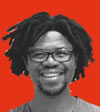The Sunday before Ashwin Willemse walked off the set during a live SuperSport broadcast after implying his fellow pundits were undermining him based on the colour of his skin, one of the said experts, Nick Mallett, sent me a WhatsApp message from out the blue.
Mallett’s message was in response to a gatvol column I’d written on race and rugby in the aftermath of Roodepoort Rugby Club’s U21s being accused of racially abusing their Wanderers Rugby Club counterparts.
My sarcastic suggestion was that we go back to the ‘good old days’ where rugby went into isolation mode again and removed what seemed to be the irritation of having to accommodate black people, and the general gist of the former Springbok coach’s text was not to ‘give up on the game’.
The reason I was taken aback by Mallett getting in touch was while I made his acquaintance from ghost writing his Sunday Times column years ago, we weren’t exactly in touch.
This is why I struggle to make the leap many have made of him being racist, especially when that label ironically puts him in the same WhatsApp group as the unenlightened and mostly Afrikaner administrators he railed against until they fired him as Bok coach.
My relationship with Willemse came from the unlikeliest place: a bar in Melbourne during the 2003 World Cup, where the then Bok wing found himself having to prove to a female companion that he knew a journo because my dreadlocks at the time made me look more musician than rugby hack.
In subsequent years, a period in which he was named SA Rugby Player of the Year at 22 in the same year and went on to win the World Cup as a squad member of Jake White’s 2007 team, my impression of Willemse was of a tough leader determined not to allow his humble beginnings get the better of his aspirations.
What impressed me the most about him was that with rugby having saved him from the life of a gangster in his native Caledon, Willemse somehow managed to not come across as bitter, despite the fact crippling injuries had the final say on what should have been a glorious Bok career.
My biggest disappointment with our reaction to Willemse’s clash with Mallett and Naas Botha was how we ignored their complexity as human beings in our rush to take sides on a narrative based only on the colour of their skin when no one person is any one thing at all times.
The incident at SuperSport was an opportunity for us all to hold up a mirror to ourselves as a society. Our solution was to lazily label the white guys racist and belittle the black guy as a cry baby – a classic case of not letting context or the facts get in the way of a hashtag cause.
This was a case study of what happens when you throw people from different backgrounds (the St Andrew’s College- and Oxford University-educated Mallett is the identikit of white privilege), and what emerged was that rugby is the metaphor for our division as a people.
The good thing to come out of this is that both sides are beginning to understand the nuances of race in situations; that it can be overt and covert.
Most black people identified with Willemse’s reaction because when you’re black in the so-called white sports or industries in this country, you constantly have to prove yourself in a space where it seems you’re only as good as your next game or job because your achievements count for nought.
A great example of this is Siya Kolisi’s appointment as Bok captain for the England series. Forget that he has 102 caps for the Stormers, is their captain and had 28 Test caps when appointed, those questioning the move did so on the basis of his form at the time, which invalidates everything he has ever done before.
The baffling thing for me about the SuperSport incident is that it has been an open secret from simply watching on screen that Mallett and Willemse didn’t quite get on – yet their employer did nothing about it until the latter resorted to dropping his mic on air.
This also raises the question of whether we are mature enough as a nation to decipher the difference between racism and two guys – one black and one white – not liking each other.
The really good thing to come out of this is that as South Africans we all have to take greater stock of the impact of our thoughts
and the language we use to voice them.
Either way, the real new South Africa, where no amount of singing and dancing will paper over the cracks of our fundamental issues, is here.
Subscribe to SA Rugby magazine
Photo: Sydney Seshibedi/Gallo Images





